A growing stink: How a controversial farming practice led to 1,700 dead fish
A flathead catfish, estimated 38-49 inches long, found dead in Little River Creek in Wilkes County. It's one of 1696 fish killed in connection to a controversial way to dispose of poultry and other food industry byproducts. (photo by Georgia Environm
WASHINGTON, Ga. - Hundreds of dead fish turned up in a river near a north Georgia dairy farm that was using a controversial product for growing crops.
It’s called soil amendment, a substitute for traditional fertilizer.
But a growing number of critics call it industrial waste. That’s because it’s made up of byproducts from poultry and other food processing plants, waste such as animal fluids or the rinse water after cleaning equipment.
Controversial farming practice led to 1,700 dead fish
Hundreds of dead fish turned up in a river near a north Georgia dairy farm that was using a controversial method of fertilizing. It’s called soil amendment, but FOX 5 I-Team reporter Randy Travis talked to plenty of people who call it something else.
Farmers are often paid to allow the mixture to be dumped into open lagoons where they eventually spray it onto nearby fields.
According to the Georgia Environmental Protection Division, 1696 fish died in the Little River in Wilkes County June 16 because the soil amendment was mishandled at McAvoy Farms, also known as Mar Leta Farms.
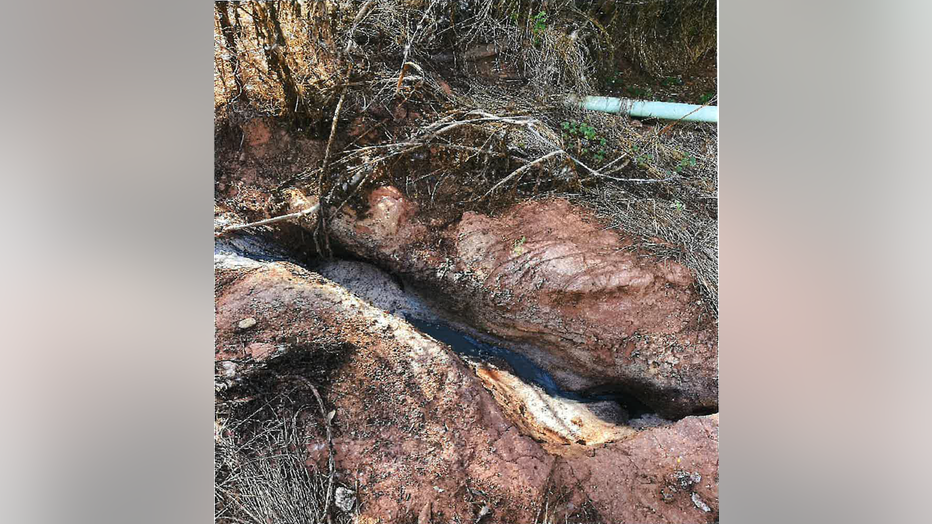
This EPD picture shows the path of the soil amendment that washed into the tributaries nearby. Inspectors say this one dairy farm accepted 1.2M gallons of sludge and other food byproducts in a six-week period. (Photo by Georgia Environmental Protecti
Pictures and a satellite map show how the mixture leaked out of one lagoon, then out of a farm pond into the creek nearby.
The owner also "did not know where the soil amendment came from," according to inspectors.
But records show it came from Nestle Purina, a pet dog food manufacturer in Hartwell, "the result of cleaning and rinsing food grade pet tanks, bins and processing equipment," according to the permit application.
In just six weeks, the EPD said the McAvoys accepted 1.2 million gallons.
"As soon as I got out of the truck my eyes went to watering," said Jeff Johnson. "That’s how strong it was."
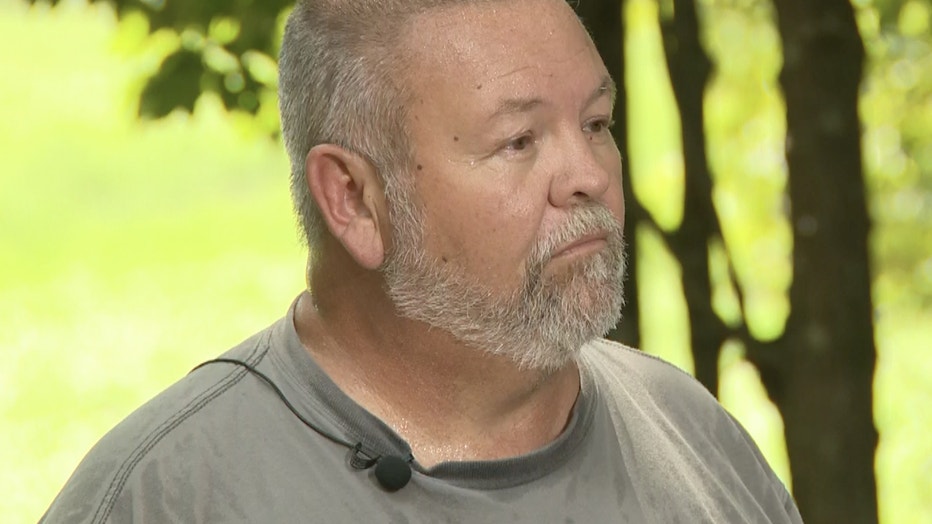
Jeff Johnson says he's lived near farms much of his life but never experienced such a constant, putrid smell since soil amendment dumping started next door.
Johnson lives in a place you don’t want to be these days. Downwind.
"It’s like you washed out the bottom of a trash can," he said. "A very foul trash can."
He’s used to a few flies, but ever since the soil amendment shipments started at that dairy farm next door, Johnson said the flies are permanent pests.
"I’ve lived here 23 years," he said as flies flew around his head. "Never before have I ever had to put out fly traps or fly strips."
"It was not plowed into the ground," Johnson insisted. "It was sprayed onto the ground and left to run off. If it had been plowed in, there wouldn’t be much of an issue at all. But it wasn’t done that way from the very beginning."
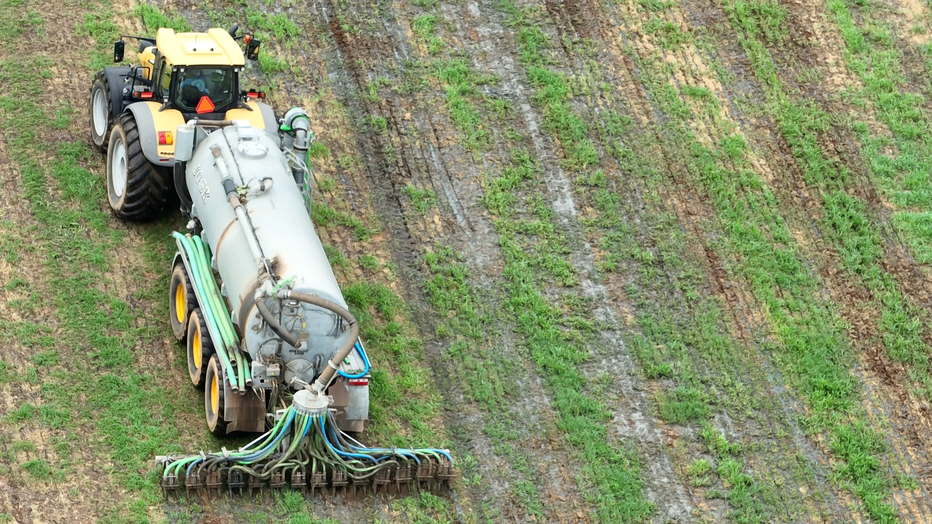
A company unrelated to the fish kill spreads soil amendment on a Madison County farm. The pools of liquid seen in the rows is the source of the stench neighbors complain they can smell from miles away.
State rules require a soil amendment be tilled under the soil within an hour of application.
EPD found the McAvoys broke the law, told them to stop taking any more soil amendment and remove "all liquids and sludge from the tributaries on your property."
No one from the family responded to an attempt for comment from the FOX 5 I-Team.
"Really, this is not to us a farm product," complained Wilkes County Commission Chairman Sam Moore. "This is an industrial waste product that they’re really dumping on these rural counties."
In 2020, the EPD accused a Gainesville farmer of letting a "foul-smelling, greasy gray sludge" run off his property. The "bakery process water" was so bad a neighbor’s "cows would not drink from the creek."
The farmer eventually paid a $5,000 fine.
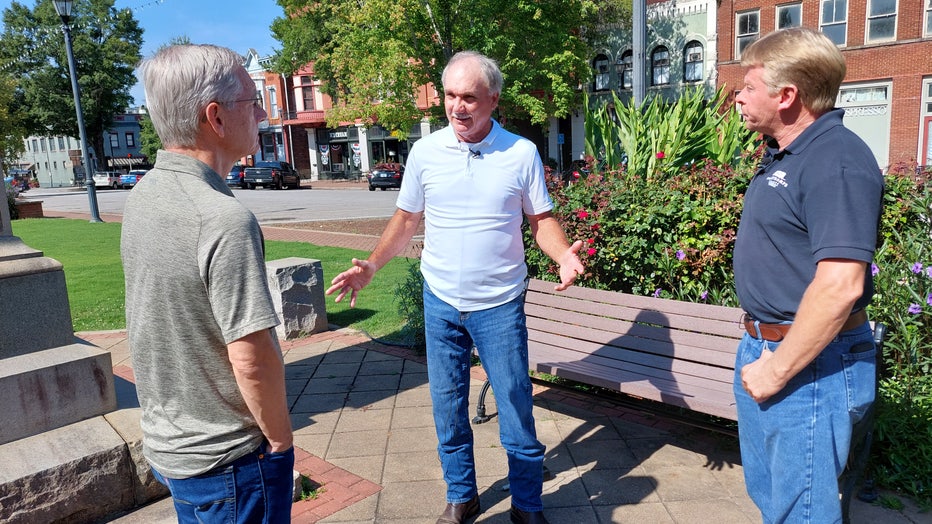
Wilkes County Commission Chairman Sam Moore (C) and Oglethorpe County Commission Chairman Jay Paul (R) say soil amendment complaints are the No. 1 issue they hear about from their constituents.
"If this stuff has such value to it, why they having to truck it 60, 80, 100 miles away and a couple hours away and sometimes pay people to take it?" asked Oglethorpe County Commission Chairman Jay Paul, another local leader who said he gets constant complaints from residents about the putrid smell.
But no matter how loud their constituents complain, local government can’t regulate where soil amendments are sprayed. That’s strictly a state matter.
A Department of Agriculture spokesman said they do not track locations, only which companies are allowed to provide the soil amendment.
"I don’t have the resources," said Paul as he stood next to his fellow chairman from Wilkes County. "Sam doesn’t and apparently the state agencies at this point don’t either. When a truck comes in, where’s the true origin? And what’s really in it?"
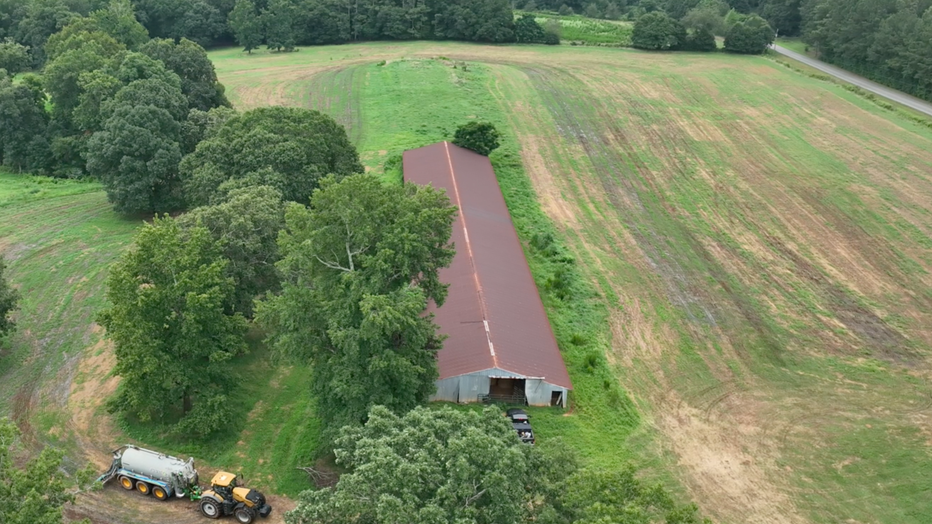
What's exactly in the mixture being sprayed in rural communities? Local leaders complain no one can give them that answer.
The FOX 5 I-Team asked those questions to the driver of a spreader truck we found spraying soil amendment in Madison County. His company is not connected to the spills.
"It’s all food processing," Dakota Turner said.
What about rural resident complaints about being targeted with such a stinky operation?
"We’ve tried to be respectful," said Turner. "You eat food, right? All right, then what are you going to do with it? It don’t just disappear.
"Go kill a chicken behind your house and see how much you got left over."

